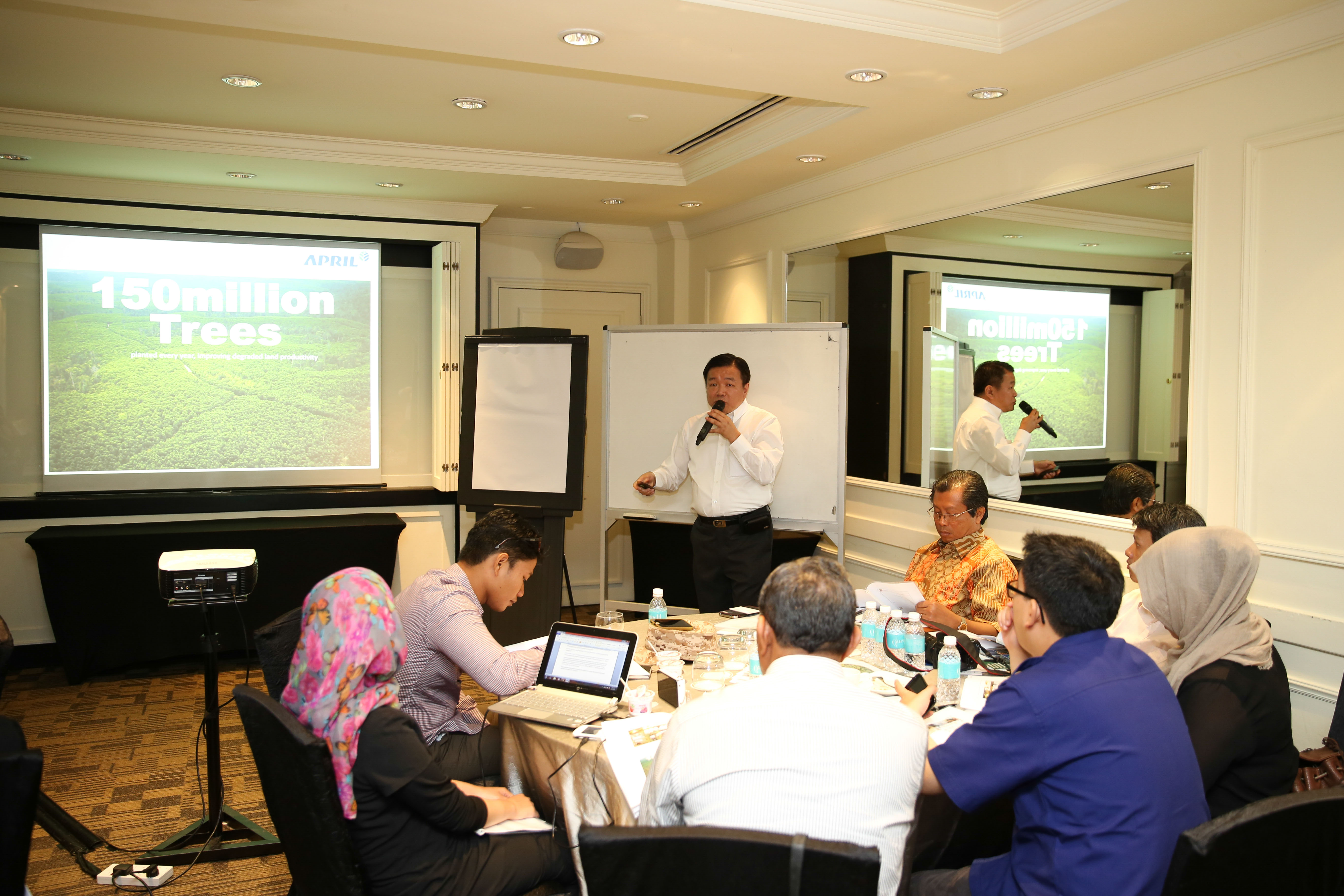During the Dialogue with RGE Senior Executives at the RGE Journalism Workshop held in Singapore in early December 2014, the journalists were able to gain a good understanding of the state of the global forestry products market and a sense of the problems and opportunities faced by the pulp & paper industry through conversations with APRIL’s President Director Kusnan Rahmin and APRIL’s Sustainability Director Dr. Petrus Gunarso.

Since 2011, the global pulp demand has been driven by China, the only country that has seen annual growth of at least 7%. Being in Asia, Indonesian pulp and paper industry is in a strategic location to supply to the China market, when compared to producers in Europe, Latin America or USA. In addition, the tropical climate in Indonesia is favourable to the planting of acacia, which can be harvested in 5 to 6 years, instead of the 20 to 25 years in the sub tropics.
However, APRIL’s President Director Kusnan Rahmin cautioned that regulation number 71 on peatland management passed in 2014 could inhibit the growth of Indonesia’s pulp and paper industry. The regulation states that the peatland is assessed to be damaged if the groundwater in the area is more than 40 centimetres below the peat’s surface. Acacia, which is the main raw material for the Indonesian pulp & paper industry, can only be grown at the minimum depth of about 70 centimetres. This regulation therefore restricts the peatland areas that acacia can be planted, thereby limiting the growth of the industry, which will then affect creation of jobs and the local economy. He also emphasized that the industry requires the support of government in terms of domestic regulations and also in the export markets by countering the negative campaign from export destinations, e.g. environmental issue for Indonesia forestry products.
During the session with APRIL’s Sustainability Director Dr. Petrus Gunarso, the journalists also understands that APRIL implements a landscape approach to forest management, which is an innovative solution to integrated production and conservation areas. Plantations were developed in areas that are non High Conservation Value forests; i.e. degraded forests and 150 million trees are planted every year, improving degraded land productivity. "Natural forests with high conservation value are conserved," said Dr. Petrus Gunarso. This results in over 250,000 hectares of conservation and indigenous tree species areas protected Voluntary High Conservation Value.
Please click to read about :


